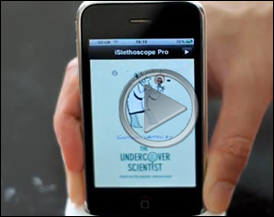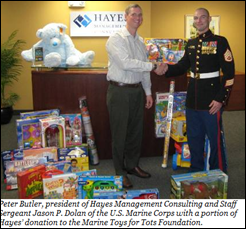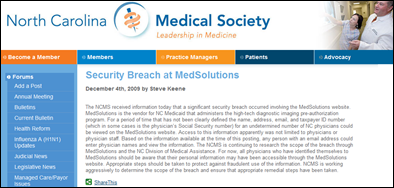Intelligent Healthcare Information Integration 12/19/09
Feeding Those Who’ve Already Supped
From Healthcare IT News, Diana Manos, December 2, 2009:
Health and Human Services Secretary Kathleen Sebelius and David Blumenthal, MD, the National Coordinator for Health Information Technology, have announced $235 million in grants supporting non-profit organizations and local governments that can exemplify the positive impact of healthcare IT on population health.
From Grants.gov, Recovery Act – Beacon Community Cooperative Agreement Program :
Selected communities must already be national leaders in the advancement of health IT, workflow redesign and care coordination, or quality monitoring and feedback. In addition, successful communities must have advanced rates of electronic health record (EHR) adoption and health information exchange (HIE), and the readiness to incorporate health IT to advance community-level care coordination and quality monitoring and feedback.
Seriously? The way to advance healthcare for communities, to help “communities to build and strengthen their health information technology (health IT) infrastructure and exchange capabilities to demonstrate the vision of the future where hospitals, clinicians and patients are meaningful users of health IT…,” is to give more money to those folks who already have money and support? They’re saying the answer lies in encouraging those things that have trudgingly brought us to our current quagmire of NHIN limbo?
This then implies that those 2,000 or so small communities across the U.S. with their associated small community hospitals where 60-70% of American’s receive their healthcare, most of whom have little to no HIT and little to no HIT funding support, are again left standing beside the table, starving, watching those who already have been tossing down giblets and gravy get fed yet again. All the while, there they stand, hunger pangs piercing their bellies, as they watch another course of fat and feast go to those who’ve already eaten while the hungry wonder where they might catch a cast off crumb or two.
No consideration for a new way to advance community healthcare integration? No promotion of novel thinking and innovation for community HIT? No “let’s encourage some disruptive shake-up for this semi-stagnant industry” to encourage new adopters and new connectors?
Maybe in my little foxhole here on the frontlines I’ve missed something, but darned if it makes any sense to me to take ARRA monies and consistently push all of them out to the “already haves.” If they already “had it” sufficiently, wouldn’t we already be seeing the integrative fruits of their labors? With so few really grand success stories in the world of CHINs and RHIOs and HIEs, what is the logic that says throwing more free (i.e., taxpayer) money at them will provide them their long sought spark?
Kathleen, David, I hereby offer my two-cent suggestion: There are lots of small communities who could use that money and I know of several disruptively innovative, out-of-the-container thinkers who might really send HIT integration to new levels for all us little guys if somebody would provide them a seat at the banquet. (They eat very little and would even help with the dishes.) How about a helping hand for the “have nots”?
From the (hungry) trenches…
“I’ll be more enthusiastic about encouraging thinking outside the box when there’s evidence of any thinking going on inside it.” – Terry Pratchett
PS – Thanks, Shabbir.

Dr. Gregg Alexander is a grunt-in-the-trenches pediatrician and geek. His personal manifesto home page…er..blog…yeh, that’s it, his blog – and he – can be reached throughhttp://madisonpediatric.com or doc@madisonpediatric.com.














The article about Pediatric Associates in CA has a nugget with a potentially outsized impact: the implication that VFC vaccines…